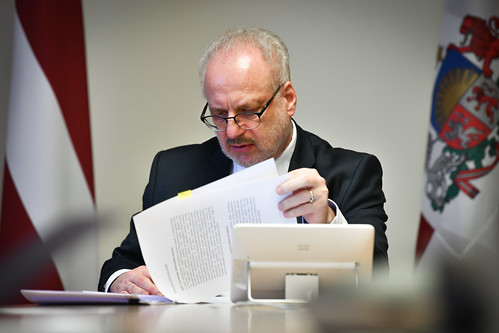‘Latvia must find an integrated crisis exit strategy. A strategy that strengthens the healthcare and social security systems and supports economic recovery and growth at the same time. We need targeted, smart and transparent investments that promote solidarity and improve Latvia’s potential for economic growth,’ stressed President Levits.
Participants discussed crisis exit strategy and identified national and global level challenges that need to be addressed. Social security discussion focused on emergency support measures, and how they have affected people’s lives, as well as economic resilience and sustainability of Latvia, including sustainability of Latvian companies.
Participants of the discussion also looked at economic downturn in the European Union and the world and its medium-term impact on Latvian economy, including effect on service and manufacturing sectors, exports and national budget. Participants exchanged views on priorities of national investment plan for boosting of Latvia’s economy.
Experts also considered how foreseeable changes in the global economy, product and service supply chains and foreign investment trends could influence economic growth. Participants stressed the need to identify transparent and clear business support criteria. Support should primarily target those companies that have better potential to be sustainable and adapt to ‘new economy’.
Participants of virtual discussion: Jānis Vitenbergs, Minister for Economy, Mārtiņš Kazāks, Governor of the Bank of Latvia, Pēteris Strautiņš, Chief Economist of Luminor Bank, Kārlis Šmits, Chief Economist of World Bank, Normunds Bergs, President of the Latvian Electrical Engineering and Electronics Industry Association, and Andris Vilks, senior official of Regional EIB Group Office for the Baltic States.





